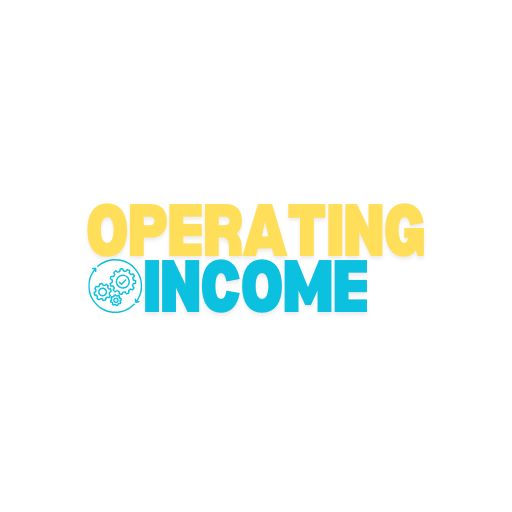I’ve been driving for nearly 15 years. I’ve never had a ticket and I’ve never been in a collision. I’m self-employed and couldn’t work much for nearly a year because of health issues. As a result, I have accumulated credit card debt. I can’t afford the minimum payments now and will be declaring bankruptcy, so my credit rating will take a hit. Could this affect how much I pay for car insurance? Until recently, I’d always had a good credit rating (and have never missed an insurance payment). I really can’t afford more expenses right now. – Chris, Calgary
If you have a low credit score, you could end up paying hundreds of dollars more a year for car insurance in Alberta and four other provinces.
“Credit score has been demonstrated to be predictive of risk,” Laurie Balfour, executive director of the Alberta Automobile Insurance Rate Board (AIRB), the province’s insurance rate regulator, said in an e-mail. “Some provinces allow [insurance companies to use credit score to set rates] for all coverages – Alberta only permits it for additional coverages to ensure drivers are not penalized by economic circumstances beyond their control.”
In Alberta, about half the insurance companies use your credit score to set your auto insurance rates – but they do that by giving you a discount for a good credit score, Balfour said.
Those companies will ask you to agree to a credit check – to let them pull up a copy of your credit report – when you apply for insurance, and if you have an existing policy with them, some may ask for another credit check when you renew your policy every year.
If you have a lower credit score, you could lose the discount, Balfour said. You could also lose it if you don’t agree to a credit check.
But in Alberta, that discount doesn’t apply to mandatory basic insurance – it only applies to collision and comprehensive coverage, which are optional.
You can’t be denied insurance coverage if you have a low credit score – or if you refuse a credit check, Balfour said.
So how much is the discount? It’s tough to say exactly, said Jody Lohr, a Calgary-based insurance broker and director of the Insurance Brokers Association of Alberta.
“[Insurance companies] have their own calculations and metrics that are not shared with the brokers,” Lohr said in an e-mail. “When quoting, we have seen savings of up to $200 [a year] or more [for a good credit rating].”
It’s not clear how high a credit score has to be to get a discount – companies don’t share that information.
How low can it go?
Generally, your credit score is determined by how you use credit, including the amount of debt you have and whether you make minimum payments on time.
In Canada, there are two private companies, Equifax and TransUnion, that collect information from your creditors to determine your credit rating.
The higher your score, the easier it is to get more credit. With Equifax, for instance, credit scores range from 300 to 900.
Generally, anything below 600 could make it tough to get a mortgage, for example, said Mark Kalinowski, a Calgary-based education specialist with the Credit Counselling Society (CCS), a non-profit with offices in British Columbia, Alberta, Saskatchewan, Manitoba and Ontario.
If you declare bankruptcy for the first time, for instance, your credit rating will take a hit for seven to eight years.
“There is no way to tell how low a credit score can go,” Kalinowski said. “I have seen them dip below 500 for some people while other people keep a mortgage-worthy score [600 or higher] – credit scoring is very complex.”
Discount, not penalty
Across Canada, insurance companies generally can use your credit score to charge you more for home insurance.
But out of the provinces with private car insurance, only Ontario and Newfoundland ban insurance companies from using your credit score to determine your car insurance rates – so Alberta, Quebec, New Brunswick, Nova Scotia and PEI all allow it. The specific rules vary by province. Some allow companies to use your credit score to set rates for all coverage, including mandatory basic insurance.
In the three provinces with government-run insurance – British Columbia, Saskatchewan and Manitoba – the public insurers don’t use credit scores to set rates, although there are no specific laws banning it.
We asked a dozen major insurance companies whether they charge drivers more for coverage if they have a lower credit score, how much they charge and whether there’s evidence that drivers with lower credit scores make more insurance claims. Most didn’t immediately respond or declined to comment. One referred us to the Insurance Bureau of Canada, which didn’t immediately answer questions.
One company, Aviva, answered. It said it gives discounts for drivers with better credit in all the provinces that allow it.
“This is important to note – there is no penalty applied for a low credit score,” Hazel Tan, an Aviva spokeswoman, said in an e-mail. “However, we’ll be able to offer discounts to drivers with favourable credit scores.”
But Tan didn’t say how much a discount could potentially be.
“It varies depending on the credit score and across provinces,” she said.
Lower credit, higher risk?
So why give drivers with higher credit ratings a break on insurance?
“What we are seeing from our claims data is that drivers with higher credit scores tend to have fewer claims,” Tan said.
So, two drivers with identical driving histories and the same vehicle could be paying different amounts because of their credit score.
Generally, companies don’t share the actuarial evidence they use to set rates.
The Canadian Association of Direct Relationship Insurers (CADRI), an industry lobby group. has asked Ontario to consider allowing insurance companies to use credit scores to set car insurance rates.
“Credit history is something people can control and those who responsibly manage their finances will benefit from better insurance premiums,” Geoffrey Beechey, CADRI’s chief executive officer, wrote in a Nov. 15 letter to the Financial Services Regulatory Authority of Ontario (FSRA), the province’s insurance regulator.
But Ontario has no plans to use credit scores as a determining factor in how companies set rates, an Ontario Ministry of Finance spokeswoman said in an e-mail.
Some insurance companies want to use credit scores because claims costs have increased and they are looking at ways to raise rates for some customers, said Matt Hands, vice-president of insurance at Ratehub.ca, a financial comparison site.
Penalizing hardship?
But critics worry that the practice could make some drivers pay more for insurance because of circumstances they can’t control – especially since the cost of living has soared across Canada.
“I’ve done this financial education job talking to people for a long time, and most of the time when people have a financial issue, it is not because they’re irresponsible and it’s not because they’re doing bad things,” CCS’s Kalinowski said. “It’s because they ran into hardship: they’ve lost a job, a spouse got sick, there’s been a divorce.”
Michéle Pelletier, New Brunswick’s consumer advocate for insurance, had been against companies using credit scores to set rates as more companies in the province started doing it. But now, after seeing some drivers get discounts, she has “mixed feelings.”
“It’s hard because when I started here eight years ago, companies were allowed to do it but they didn’t,” Pelletier said. “People are calling us and saying they’re seeing discounts of 10 or even 15 per cent. Here, the average premium is around $1,100, so 10 per cent is 110 bucks.”
But Pelletier has also heard from drivers whose rates went up.
“We had a woman who was 85 and her husband had passed – everything had been in his name and she had no credit history,” said Pelletier. “She called us and we called the company and they decided to give her the discount. We can ask, if someone has cancer [for example], but the companies may not do it.”
Have a driving question? Send it to [email protected] and put ‘Driving Concerns’ in your subject line. E-mails without the correct subject line may not be answered. Canada’s a big place, so let us know where you are so we can find the answer for your city and province.




